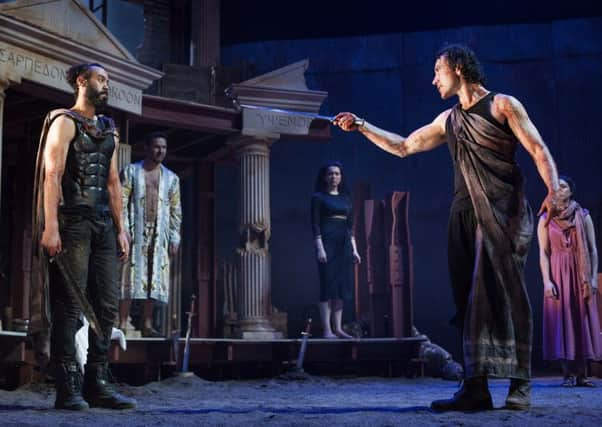Review: The Iliad


For those unfamiliar with the piece, the Gods of Olympus have taken their sides as Greeks and Trojans battle over the beautiful Helen. Only the invincible Achilles can tip the scales of war to glory or defeat, but humiliated by his leader Agamemnon, he is refusing to join the fray.
Writer Chris Hannan’s colourfully witty take on Homer’s epic poem unfolds against a background of faux stone pillars, sheets of corrugated iron and rust red girders - the action may take place in the Heavens and beyond the walls of ancient Troy, but this very much theatre made in Scotland, and like so much Scottish theatre, the casting is problematic.
Advertisement
Hide AdAdvertisement
Hide AdTo hold an audience in thrall for three hours (including 20 minute interval) takes skill, skill not always evident here. Thankfully, Ben Turner’s electric Achilles is worth the ticket price alone. In a compelling turn he captures the poetry of Hannan’s text, bringing the piece alive with each entrance.
Without him, what should be edge of the seat stuff often lacks urgency and Turner’s raw emotional turmoil only serves to highlight the deficiencies of many around him. Good support, however, does come from Mark Holgate as Achilles’ brother-in-arms Patroclus.
As actors transition from character to another, there is much on-stage dressing and undressing, donning and doffing of armour.
Stylised blood-letting is executed with the abandon of a student production with a concept forgetting that great violence requires consequences not unintentional moments of mirth.
Advertisement
Hide AdAdvertisement
Hide AdThis is about anger, declares Hera, played with wavering conviction by Emmanuella Cole, at the top of the play, but as Gods bicker and men battle, so the angry clash of ancient and modern dissapoints as artistic intentions are never fully realised.
Run ends 14 May